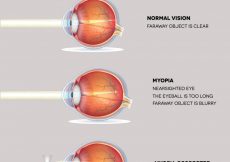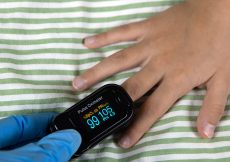Zika is a type of virus transmitted by an infected Aedes mosquito that usually bites during the day. The virus was first discovered in Africa around 70 years ago. Later, it spread to other tropical parts of the world, such as Central America, South America, Asia, and the Pacific.
While most of the children affected by the Zika virus do not develop any symptoms, one in five children may develop mild symptoms two to 14 days after being infected by the virus (1). The infection usually gets better in two to seven days, but in some cases, it develops into a more serious neurological condition called the Guillain-Barre syndrome (2) (3).
Read this post to know more about the transmission, symptoms, complications, diagnosis, and treatment of the Zika virus in children.
What Age Does Zika Virus Affect?
Zika virus may affect at any age, but unborn babies are at the greatest risk. If the virus infects pregnant mothers, babies may be born with microcephaly (head circumference and brain volume are smaller for age) or other developmental and health disorders (4).
How Does Zika Virus Spread?
Zika virus may spread in different ways.
- Mosquito bite: In most cases, Zika virus transmission occurs through the bite of an infected Aedes aegypti or Aedes albopictus mosquito living in the tropical or subtropical regions. Aedes mosquitoes that transmit the Zika virus are the same as those that transmit chikungunya, dengue, and yellow fever. They generally bite during early mornings or late afternoon/evening (2) (3)
- Virus transmission during pregnancy or birth: Zika virus may be transmitted to the growing fetus during pregnancy (congenital transmission) or to an infant during birth (perinatal transmission) (5).
- Congenital transmission: According to experts, the Zika virus passes through the placenta to the growing fetus.
- Perinatal transmission: This transmission occurs when the pregnant mother contracts viral infection two weeks before her delivery. The virus then gets transmitted to the infant around or at the time of birth. The infected infants may develop conjunctivitis, pain in joints (arthralgia), rash, and fever.
- Postnatal infection: Babies and children may be infected after birth through mosquito bites. Most children remain asymptomatic or develop a mild illness due to Zika virus disease. Treatment mostly includes taking rest and drinking plenty of fluids (5).
- Sexual transmission: Zika virus may be transmitted during sexual activity through the body fluids of an infected partner (semen in men and vaginal or menstrual fluid in women). Therefore, men at the risk of Zika virus exposure should use condoms or stay away from sexual activity if their partner is pregnant (1).
Zika virus has also been found in breast milk; however, the Centers for Disease Control and Prevention (CDC) does not have sufficient evidence to prove that the virus is transmitted through milk. Moreover, the benefits of breastfeeding are more significant than the risk of transmitting the Zika virus. Therefore, CDC recommends mothers continue breastfeeding their children even if they are infected or have had virus exposure recently (5).
What Are The Zika Virus Symptoms In Children?
Only some children show the symptoms of Zika virus infection.The common symptoms are (2):
- Mild fever
- Joint pain or muscle pain
- Headache
- Rash
- Conjunctivitis (red eyes with no pus)
What Are The Risks And Complications Of Zika Virus Infection In Children?
In some cases, Zika virus infection leads to serious complications. These are (3) (6):
- Microcephaly: If the mother has a Zika virus infection during pregnancy, the baby may be born with microcephaly or other congenital abnormalities.
- Congenital Zika syndrome: Babies have a group of five birth defects and disabilities linked with pregnancy-related Zika virus infections. These conditions cause health and developmental problems. About one in ten infected pregnant women in the US and the District of Columbia give birth to a baby with these conditions. It is believed that the women who get infected in the first trimester are more likely to have children with birth defects than those who get infected later.
The other developmental delays due to microcephaly are (7):
- Delayed speech milestones
- Delayed motor milestones such as walking, standing, and sitting
- Difficulty in swallowing or feeding
- Hearing and vision problems
- Guillain-Barre syndrome: Sometimes, Zika virus infections in children also develop into a condition called Guillain-Barre syndrome, a neurological condition characterized by nerve weakness or paralysis (7).
Moreover, Zika virus infection in pregnancy also gives rise to other problems such as:
- Growth problems in the fetus
- Miscarriage (death of the fetus before 20 weeks of pregnancy)
- Stillbirth (death of the fetus after 20 weeks of pregnancy)
How Is Zika Virus Diagnosed In Children?
Zika virus infection is tested with the help of a blood, semen, or urine test. Sometimes, cerebrospinal fluid or amniotic fluid may also be used for testing the infection.
Children who have traveled to a Zika virus-infected place in the last 12 weeks should undergo the laboratory diagnosis. In addition, pregnant women who have either traveled to an infected area or had sexual contact with an infected male should also be tested whether the symptoms manifest or not (3) (8) (9).
Testing of infants born to a Zika virus-infected mother involves these evaluation tests:
- A detailed physical examination
- Vision screening
- Developmental screening
- Newborn hearing screening
Infants with birth defects related to congenital Zika syndrome are further evaluated, monitored, and counseled by healthcare providers. However, infants with no significant clinical findings are not tested (10).
How Is Zika Virus Treated In Children?
There is no specific treatment for Zika virus infection. Most infections get resolved by themselves. Children who have the infection must take adequate rest and drink plenty of fluids to relieve the symptoms. Acetaminophen may be given in case of fever or aches. It would be best not to give aspirin to treat Zika virus disease in children as it might lead to Reye syndrome (2).
How To Prevent Zika Virus Infection?
Vaccines are not available for Zika virus disease, so prevention is the only way to stay safe from the disease. Some ways in which you can prevent the infection are (2) (9):
1. Cover up
- Encourage children to wear full-sleeved dresses with thicker fabric that can prevent mosquito bites.
- Use fabrics treated with insect repellents such as permethrin.
2. Use insect repellents
- Always use Environmental Protection Agency (EPA)-recommended repellents.
- Do not apply repellents on hands, eyes, or mouth.
3. Stay away from mosquitoes
- Use mosquito screens, nets, and air conditioning.
- Remove standing water to stop mosquitoes from laying eggs.
- Get rid of all leakages at home.
- Clean swimming pools, flower pots, and buckets.
4. Couples trying for pregnancy
- Since Zika virus disease causes serious problems in babies, couples should wait for eight weeks before trying for pregnancy if the woman has been infected or traveled to a virus-infected place.
- The couple should wait for six months before trying for pregnancy if the man has been infected or has traveled to a place with a Zika virus infection.
When To See The Doctor?
Contact the doctor if your child experiences the following symptoms (11):
- Problems in breathing
- High fever
- Weakness of muscles
- Paralysis
- Problems with vision
Zika virus diseases are often mild, and children recover well within a few days. However, since there is no vaccine for the infection, it is better to adopt preventive measures to stay safe. If you live in a mosquito-infested area or are traveling to one, take precautions against mosquito bites. Pregnant women should be extra careful, so their babies grow well and stay safe and healthy. In case of any concern, always contact healthcare providers.
References:
MomJunction’s articles are written after analyzing the research works of expert authors and institutions. Our references consist of resources established by authorities in their respective fields. You can learn more about the authenticity of the information we present in our editorial policy.
Recommended Articles
The following two tabs change content below.




































